Putin is challenging the International Criminal Court. Who will bear responsibility for Mongolia's failure to arrest the dictator?
Viktoriia Mankovska
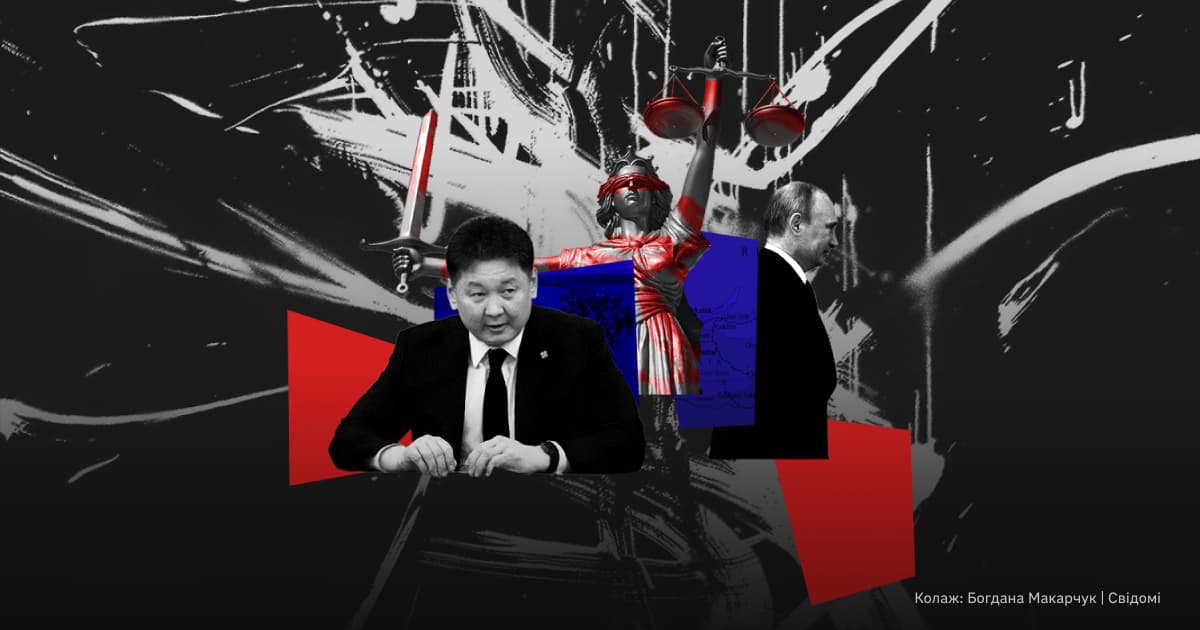
On September 2, Vladimir Putin arrived in Mongolia. It was his first visit to a member state of the International Criminal Court after the ICC issued an arrest warrant for Putin for abducting children from the occupied territories of Ukraine.
Mongolia, as a signatory to the Rome Statute (the international treaty establishing the ICC and authorizing it to investigate war crimes, crimes against humanity, genocide, and crimes of aggression) since 2002, should have arrested Putin and committed itself to comply with ICC decisions. But it has failed to do so.
Svidomi finds out why Mongolia did not extradite Putin to the ICC and the consequences of violating its commitment to the ICC.
Putin visited Mongolia. How did the world react?
Putin's visit to Mongolia officially marks the 85th anniversary of the Battle of Khalkhin Gol, a military conflict between Japan and the Soviet Union in 1939 on the territory of today's Mongolia. The Kremlin press service said Putin and Mongolian President Ukhnaagiin Khürelsükh discussed the development of Russian-Mongolian relations and signed several bilateral documents. Kremlin spokesman Dmitry Peskov said there was no threat of Putin's arrest in Mongolia.
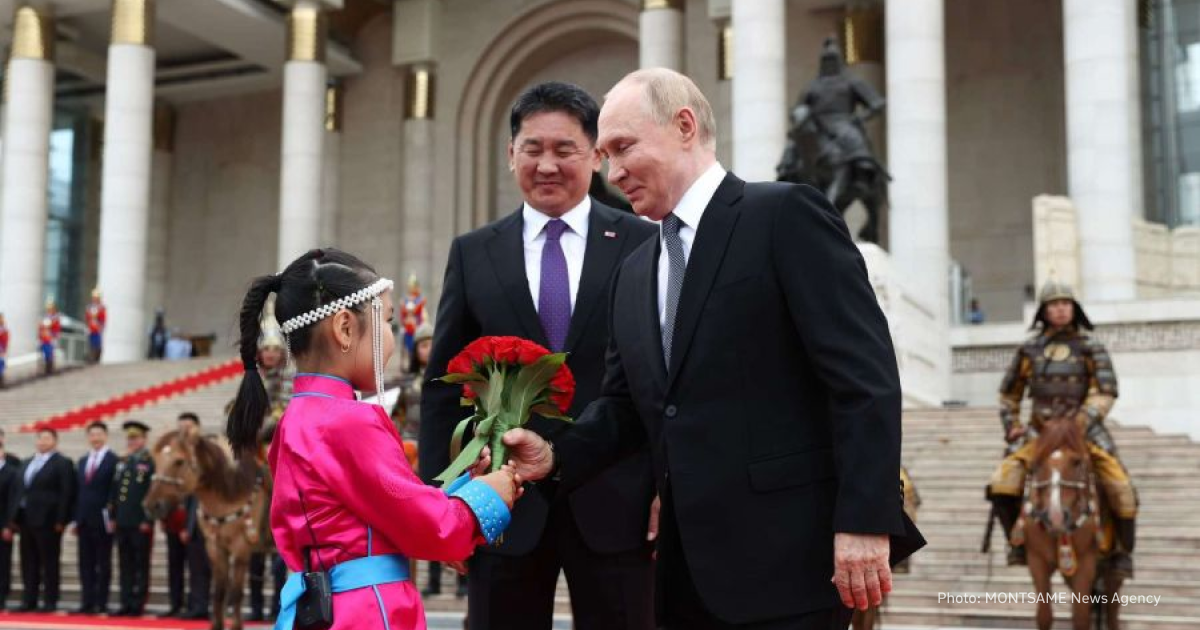
Ukraine called on Mongolia to execute a binding international arrest warrant and hand Putin over to the International Criminal Court in The Hague, noting that Putin is a war criminal. The EU expressed concern over Putin's visit and also stressed Mongolia's obligations as a signatory to the Rome Statute.
Dr Fadi el-Abdallah, an ICC spokesperson told the BBC that Mongolian officials "have the obligation" to abide by ICC regulations. He referred to the Chapter IX of the Rome Statute: in some circumstances, states may be exempted from the obligation to carry out an arrest where they would be forced to "breach a treaty obligation" with another state or where it would violate "diplomatic immunity of a person.” Chapter IX does not refer to the arrest of a person but rather to his or her transfer to a court. However, even in such cases, the state must consult with the ICC, and the court must seek the support of that state.
However, the ICC did not report a request for advice from Mongolia or its actions regarding Putin's visit.
After Putin's departure, a spokesperson for the Mongolian government said that the country was in a situation of energy dependence. This, he said, complicates the possibility of arresting the Russian leader.
“Mongolia imports 95% of its petroleum products and over 20% of electricity from our immediate neighbourhood (Russia and China — ed.). This supply is critical to ensure our existence and that of our people,” a Mongolian government spokesperson said.
He added that "Mongolia has always maintained a policy of neutrality in all its diplomatic relations," which is confirmed by its official statements.
Putin's likely goals for his visit to Mongolia
Alina Hrytsenko, senior adviser at the National Institute for Strategic Studies, says the first goal was to discredit international legal institutions such as the ICC.
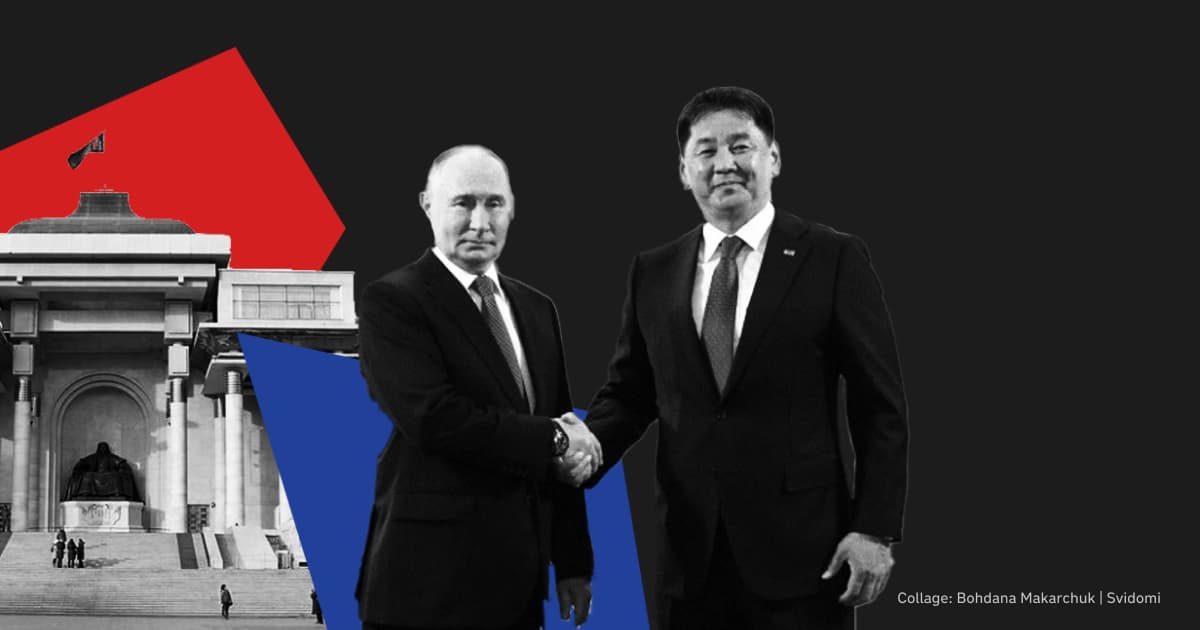
In March 2023, the ICC issued an arrest warrant for Putin and Russia's children's ombudsman, Maria Lvova-Belova. This happened after the Pre-Trial Chamber examined the evidence presented by the prosecutor and approved the decision to issue the warrant. The document states that Putin and Maria Lvova-Belova are personally responsible for the war crime of deporting Ukrainian children.
ICC Chief Prosecutor Karim Khan says his office has confirmed the deportation of at least hundreds of children taken from orphanages and boarding schools. Many were placed for adoption in Russia. Prosecutors say this indicates that the children were to be permanently removed from Ukraine.
Being president does not protect Putin from prosecution. If he is arrested, the court will choose a preventive measure and continue the investigation. One hundred and twenty-three countries must hand him over to the court.
"Until recently, we could say that Putin was quite limited in his foreign policy manoeuvres. But here we have a serious precedent that may indicate that Putin will be less afraid of, as they say in Russia, 'the laws imposed by the West'. This will allow him to travel more often to other influential countries of the world," Hrytsenko says.
In July, for example, Putin received an invitation to the inauguration of Mexico's new president, Claudia Sheinbaum, which will take place on October 1. Mexico signed and ratified the Rome Statute in 2005. Accordingly, if Putin travels to Mexico City to attend the ceremony, it is up to Mexico to arrest him.
After Putin's visit to Mongolia, this may not happen, notes Hrytsenko. Although the Russian leader's visit to Mexico has not been confirmed. Mexico, unlike Mongolia, is quite far from Russia. Therefore, Putin may decline the invitation for reasons of his security.
The second goal of the visit is to show the Russian people and the world that Putin is not afraid of arrest warrants and can travel freely.
The third goal is to show the Russian people that Russia will not remain a diplomatically isolated state.
"I should note that this strategy is being implemented relatively effectively because this year alone Putin has made several important visits: to China, Vietnam and Azerbaijan. In this way, Putin is trying to demonstrate that Russia has 'friends' who, for one reason or another, are interested in cooperation. In other words, countries should not be afraid of the world's negative reaction if they establish relations with Russia," Hrytsenko says.
In particular, Washington responded to Putin's visit to Ulaanbaatar (the capital of Mongolia — ed.) by saying that it would not take countermeasures against Mongolia because cooperation with Russia is a matter of national security for Mongolia. The problem is that many countries can explain their cooperation with Russia as a matter of national security, Hrytsenko notes.
Putin's fourth goal was to divert Russia's attention from the Ukrainian army's offensive in the Kursk region. According to the chief consultant of the National Institute for Strategic Studies, Russia is trying to show that there is no panic, no crisis, and no humanitarian problems in the region. At the moment, Putin is travelling around the world, so the attack on the Kursk region should not be a cause for concern.
What are the possible consequences for Mongolia?
According to the procedure set out in the Rome Statute, since Mongolia has refused to cooperate, the ICC judges may draw a conclusion and notify the Assembly of States Parties to the Rome Statute. The Assembly will then decide what to do next.
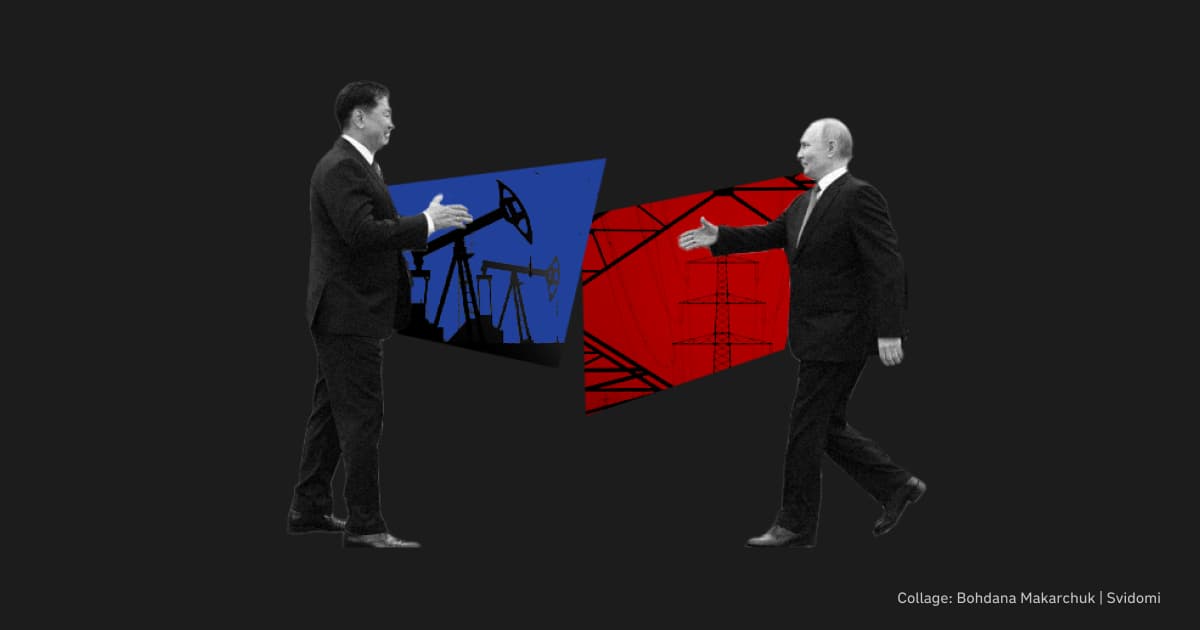
Oleksandr Merezhko, Chairman of the Verkhovna Rada Committee on Foreign Policy and Interparliamentary Cooperation, noted during the briefing that Mongolia has violated the general principles of international law.
"Here we can talk about certain political and diplomatic sanctions. If Western countries reduce aid to Mongolia, this can be considered as certain sanctions and a reaction to the violation," Merezhko said.
In addition, the MP said that a judge from Mongolia should not be a member of the ICC. Asked whether there is a mechanism to exclude Mongolia from the list of member states, the MP said that "it is theoretically possible."
"At least I think this question should be raised. International treaties and multilateral international conventions do not always have such a mechanism. However, it is possible and necessary to raise this question," the Committee Chairman says.
According to Ukrainian Foreign Ministry spokesman Heorhii Tykhyi on the social media platform X, Mongolia's refusal to comply with the ICC's binding arrest warrant for Putin "is a heavy blow to the International Criminal Court and the international criminal justice system."
"Mongolia has allowed an indicted criminal to escape justice, thereby sharing responsibility for his war crimes. We will work with our partners to ensure that there are consequences for Ulaanbaatar," Tykhyi added.
The list of tools Ukraine can use to bring Mongolia to justice is quite limited. The first is economic sanctions on bilateral trade and economic relations, which are not developing very dynamically because Mongolia is not a priority country for Ukraine. However, this country is interesting for us in the long term. The Mongolian population shows a relatively high level of support for Ukraine, Hrytsenko said.
Economic sanctions are unlikely to significantly impact Mongolia's economic situation, which is dependent on Russia and China.
The second tool is diplomatic. If the Mongolian ambassador were in Ukraine, he could be summoned to the Foreign Ministry for explanations. But the Mongolian ambassador is in Poland.
Hrytsenko notes that breaking off diplomatic relations would be a radical step because there are representatives of political forces in Mongolia with whom it is possible to start a discussion in Central Asia.
What is Mongolia's position in the international arena?
According to a study by the National Institute for Strategic Studies, Mongolia is in a difficult situation in an uncertain geopolitical and geoeconomic environment. The landlocked state is attempting to pursue an independent "multi-pillar" foreign policy to maintain balanced relations with neighbouring Russia and China. Mongolia is actively building relationships with the United States, European countries, and Asian partners, including Japan and South Korea.
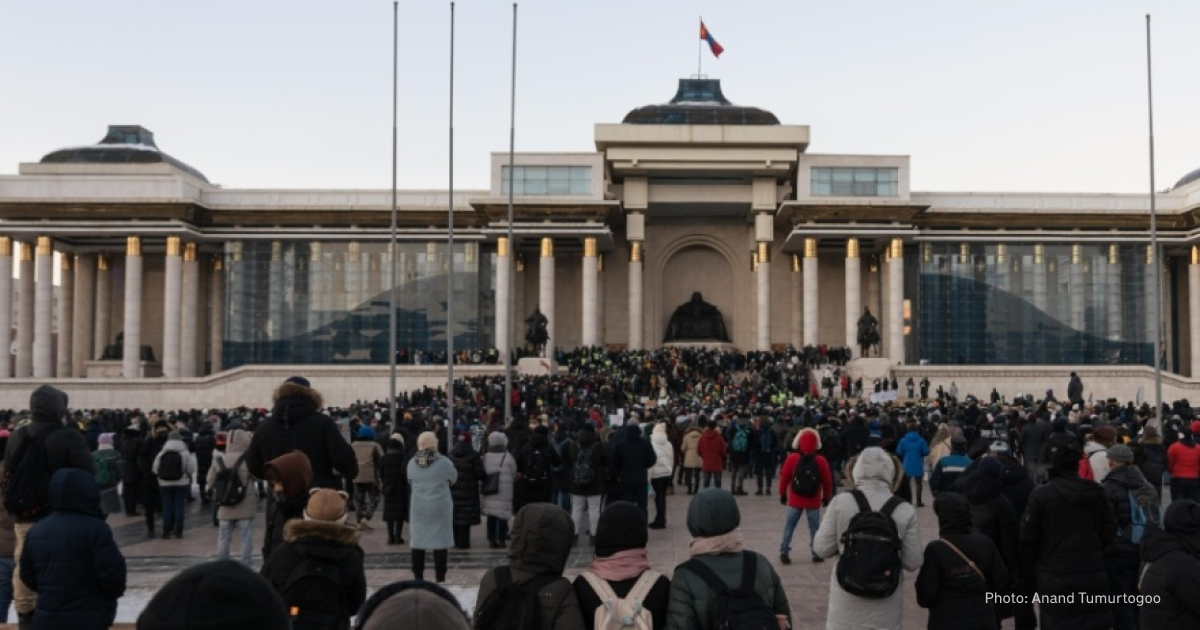
"Theoretically, this country would be very important for building diplomatic relations, but we also need to understand Mongolia's situation. It really cannot refuse to cooperate with Russia. To do so would jeopardize its economic and energy security. After all, given the rationality of the Russian leadership's actions, we cannot rule out provocations on the border with Mongolia," Hrytsenko says.
Ukrainian-Mongolian cooperation is developing slowly due to Mongolia's geographical location, which makes it impossible to establish direct logistics between the two countries. Bilateral economic ties remain at a relatively low level despite the potential in areas such as trade, investment, and agriculture. In recent years, interaction between Ukraine and Mongolia has taken place mainly in the diplomatic sphere and within the framework of international organizations and forums.
Another important aspect of Mongolia's foreign policy is the "permanent neutrality" principle, which means neutrality in times of war and peace. This means the state's non-nuclear status, the prohibition of stationing foreign troops on the territory of the state, the transit of foreign military contingents, and the refusal to use armed forces to settle disputes, attack other states, threaten to use force, or be the first to use armed forces.
Ukrainian-Mongolian relations and Mongolia's position on the Russian-Ukrainian war
Before Putin visited Ulaanbaatar, political communication between Mongolia and Ukraine had intensified slightly. For example, in 2021, the Verkhovna Rada of Ukraine created a group for interparliamentary relations with Mongolia. The Mongolian parliamentary group Mongolia-Ukraine was established in the Great State Hural (unicameral parliament of Mongolia - ed.).
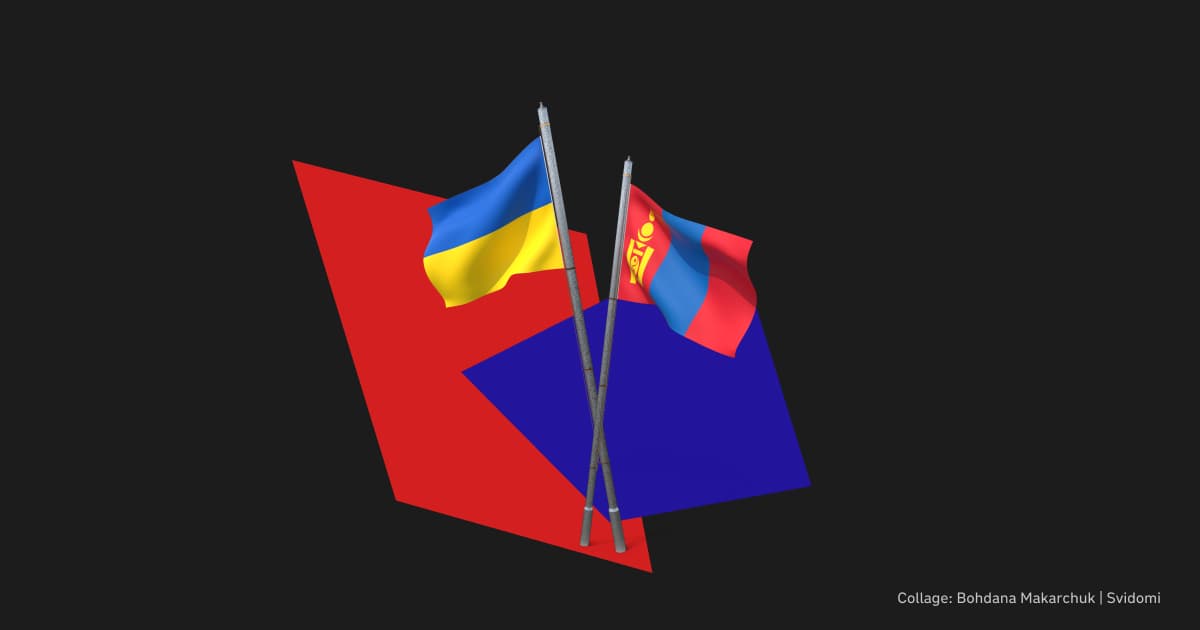
In a conversation with President of Ukraine Volodymyr Zelenskyy in 2023, Mongolian President Ukhnaagiin Khürelsükh expressed his condolences to those affected by Russia's full-scale invasion of Ukraine. In January 2024, former Ukrainian Foreign Minister Dmytro Kuleba spoke with Mongolian Foreign Minister Battsetseg Batmunkh. It was dedicated to the development of Ukrainian-Mongolian relations. The parties discussed the Ukrainian Peace Formula proposed by Zelenskyy and preparations for the Global Peace Summit.
Officially, Mongolia remains neutral in Russia's war against Ukraine. The foreign minister said that Mongolia is deeply concerned about "recent events" and is committed to the principles of peacefulness. The minister called on the parties to “negotiate diplomatically, voluntarily cease fire and reduce tensions.”
In April 2022, at an extraordinary meeting, the Mongolian government decided to provide Ukraine with $150,000 through the UN Central Emergency Response Fund and $50,000 from the State Reserve Fund through the International Red Cross and Red Crescent Movement.
Hrytsenko notes that politicians from the opposition Democratic Party, including former President Elbegdorj Tsakhia, Prime Minister Mendsaikhany Enkhsaikhan, and Deputy Prime Minister Davaadorjiin Ganbold, have condemned Russia's war against Ukraine as a gross violation of international law. Elbegdorj also called on Tuvans, Buryats, and Kalmyks (Mongolian peoples living in Russia) to avoid mobilization, promising them asylum in Mongolia.
Do other countries avoid fulfilling their obligations to the ICC?
Last year, Putin was scheduled to go to South Africa for the BRICS summit, an alliance of the largest developing countries by area and population formed in 2006. The organization includes Brazil, Russia, India, China, South Africa, Egypt, Ethiopia, Iran and the United Arab Emirates. At the time, South Africa, which had ratified the Rome Statute, was considering options for not executing the arrest warrant for Putin.
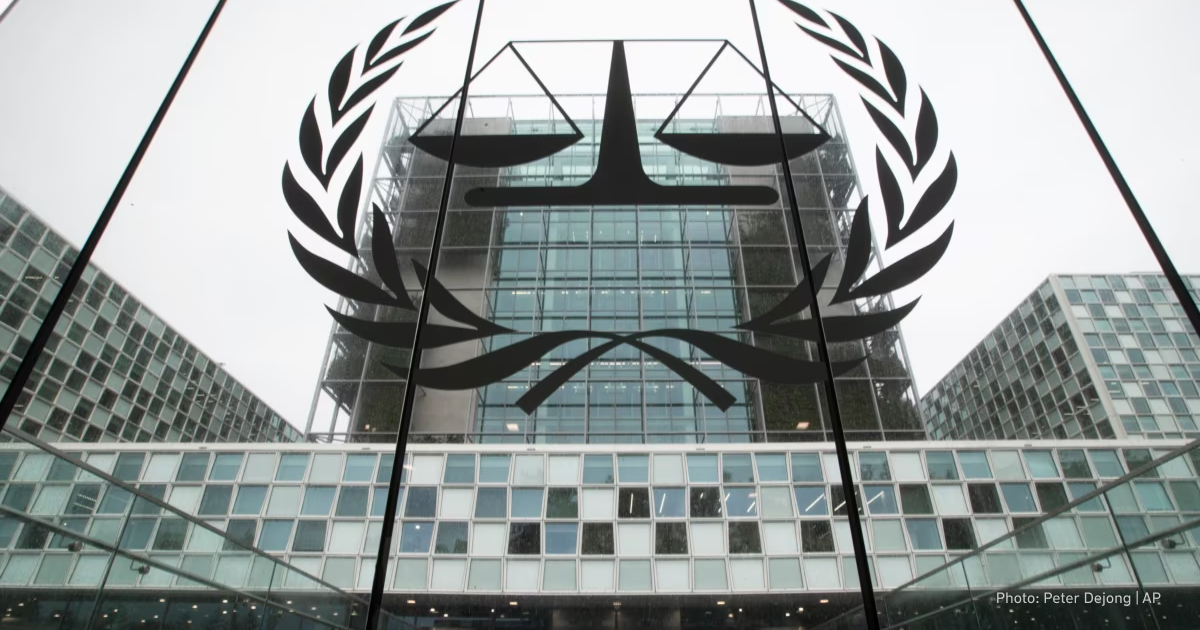
President Cyril Ramaphosa said that Putin's arrest at the summit would amount to a declaration of war against Russia. Nevertheless, the South African government asked the court to issue an arrest warrant for Putin in case he arrived in the country. However, this came after the Kremlin decided to send Foreign Minister Sergei Lavrov to the summit instead of Putin. South Africa tried to persuade the Russian leader not to go, including offering to host the summit online.
In 2015, South Africa violated its obligations under the Rome Statute by failing to arrest former Sudanese President Omar al-Bashir. He is accused of multiple war crimes and ethnic cleansing related to the Darfur conflict. He has been accused of murder, robbery, torture and rape, child slavery, and harsh conditions in refugee camps throughout Sudan's armed conflicts. In 2009-2010, the International Criminal Court issued several warrants for his arrest.
Omar al-Bashir arrived in South Africa to attend the African Union Summit. South Africa stated that Bashir enjoyed diplomatic immunity as president. However, the Rome Statute does not provide for immunity for current and former heads of state for serious international crimes.
The High Court of South Africa issued an interim order prohibiting Omar al-Bashir from leaving the country until the issue of his arrest is resolved. However, the Sudanese president was able to leave South Africa while the court was still considering the case.
Two years later, the Pre-Trial Chamber of the International Criminal Court concluded that South Africa must execute the arrest warrant for Omar al-Bashir and referred the case to the UN Security Council and the Assembly of States Parties to the Rome Statute.
South Africa remained a member of the ICC, no sanctions were imposed, and the UN Security Council took no action.


